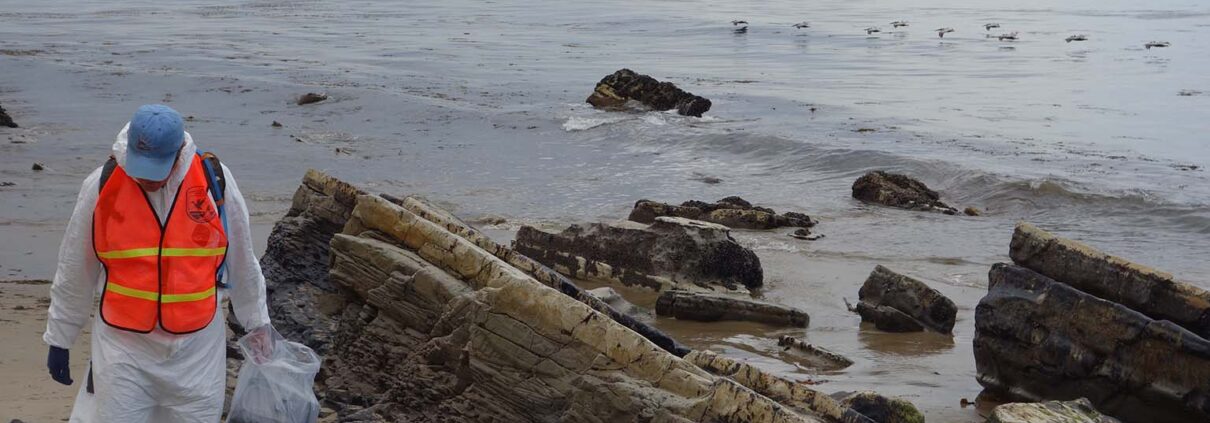The 2021 Southern California Oil Spill was a clear reminder of California’s ongoing debate around the future of offshore oil in the state. The broken pipeline off the coast of Huntington Beach led to an estimated 24,696 gallons of oil being released into coastal waters. Although this amount pales in comparison to the 2015 Refugio spill (~126,000) and the infamous 1969 Santa Barbara spill (~3 million) which resulted in the end to oil exploration leases in state waters, the impacts of oil on California’s coastal ecosystems, economies, and livelihoods remains an issue. Oil spills result in toxic compounds persisting for long periods of time in the environment, impacting water quality and wildlife. Along with the documented wildlife reportings and immediate beach closures, a lasting economic impact to local communities is likely due to tourism revenue loss and commercial fisheries loss following the spill. As of November 2021, fisheries closures are still in effect for 645 square miles off of Orange and San Diego counties.
In response, Ocean Science Trust held a Science Briefing for the State Legislature to discuss the environmental and economic impacts of oil spills in California. In this live Q&A with legislative staffers, panelists discussed what we know about the short and long-term impacts of oil on sensitive ecological habitats, local and migratory wildlife, and coastal livelihoods. Expert panelists included:
- Dr. Rich Ambrose, UC Los Angeles
- Dr. Sean Anderson, CSU Channel Islands
- Dr. Jenifer Dugan, UC Santa Barbara
- Dr. Andrea Bonisoli Alquati, CSU Poly Pomona
- Dr. Natalie Mladenov, San Diego State University
- Dr. Steve Hampton, Former CDFW OSPR
Read more about the science and impacts of oil spills in our briefing handout.
The recent spill also reignited a long-debated, but pertinent topic for California: oil and gas infrastructure decommissioning. There are currently 23 offshore oil platforms in federal waters off the coast of California. How and if to decommission these platforms is an important on-going discussion with human, environmental, and economic dimensions.
In 2010, Ocean Science Trust completed a formative study on this topic, producing an analysis of decommissioning methods that weighed various impacts, fiscal costs, and potential benefits of each strategy. The report and subsequent policy memo provided critical science advice as policy was being debated and passed in the State Legislature, such as the 2010 Rigs-to-Reef program. This report illustrates the importance of science-based recommendations for ocean and coastal issues and exemplifies the vital role of Ocean Science Trust in doing so for the state. The 2021 Southern California Oil Spill and the measurable environmental and human risks along our coastline associated with offshore oil and gas infrastructure serves as an important reminder to elevate science-based guidance for tackling these complex issues.




